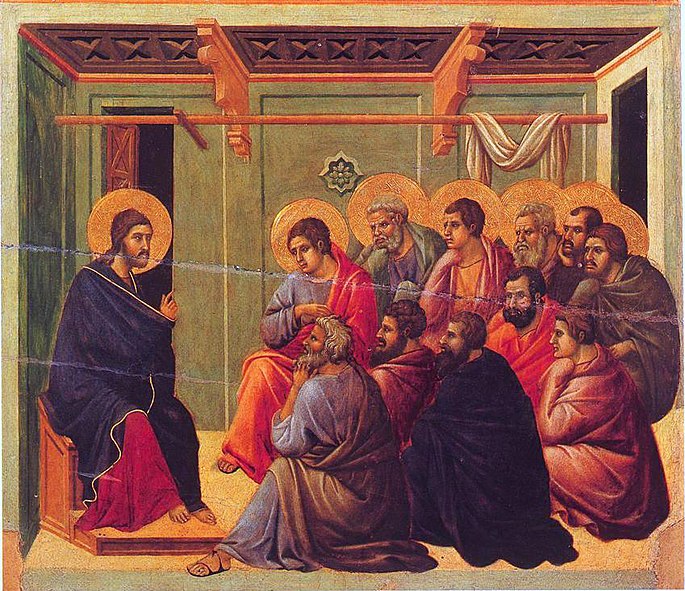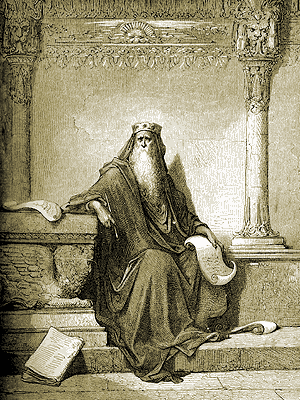Joshua 24:1-18 and John 6:56-69
 |
| Photo by Stephen Radford on Unsplash |
Two married couples got together one evening and they started to tell each other about some nice restaurants in the area where they had eaten.
One husband proclaimed to the other three folks that he had eaten at a great Italian place but he couldn’t remember the name.
He asked the other three, “What’s the name of that flower? It smells good, people grow it in gardens, and it’s red?”
“A rose?” all three responded.
“YEAH YEAH, that’s it!”
He turned to his wife and said “Hey Rose, what was the name of that restaurant we ate at Wednesday night?”
I have shared with you all a number of times and in a number of different ways, that I’m not sure I want to be remembered.
It sounds a bit self deprecating, or an effort to make myself into a martyr, but this is truly my wish for you as a congregation as I look to your future mission.
It isn’t that I am not proud of the work I have done or the ministry that we have shared together.
It is just that I cannot see a fruitful ministry for ANY congregation, which is rooted in any one person outside of Jesus the Christ.
It doesn’t matter how “good” a pastor is or what gifts they bring to the table.
If ministry isn’t centered in the Word, the meal, or our baptism, it really isn’t the ministry of the God’s Church.
I’ve always tried to express the importance of this, but given that today is probably my last time in this pulpit, I really want to emphasize that point to you.
Because those sacraments and this Word are the clearest window we are given into God’s grace, God’s mercy, God’s love, and the invitation we receive to take up that call for ourselves.
Today’s first lesson finds Joshua in a place similar to mine.
 |
| Karolingischer Buchmaler, Joshua and the Israelite people, 840 (PD) |
Just as today serves as my final discourse, this lesson from Joshua serves as his final discourse.
Now, I’m not sure how early he mailed out his letter, because he was able to gather ALL the tribes of Israel together.
We may be short a tribe or two this morning, but regardless, I hope you will carry on this message to all those who couldn’t be with us today.
Because I think Joshua’s message is truly relevant to us today as we celebrate these past few years, and we look to what God calls us to now, as we move forward.
Joshua is as aware -just as I am- that nostalgia can distract us from who, where, and what we are called to be.
He demands that the people put away the gods of their ancestors, including the gods of Egypt, the gods credited with their enslavement, the gods that could very well enslave them again, this time to idolatry.
Think about it, even in a state of slavery and abuse, many of them are looking back on those days as if those were their best of days!
If they look back on a time of slavery as their “good times,” that should tell us all a little bit of something.
Because we have a tendency to make an idol of the past, to make gods out of the past, and when we are too busy looking through the rearview mirror to see the car in front of us, we all know how that one ends.
It's a trap we all fall into, but it is also a danger we need to be aware of, because God’s mission doesn’t happen in reverse or rewind, and it doesn’t take detours.
God’s mission plows ahead, full steam, with us or without us.
And when we dwell on how good it was, it is far too easy to lose sight of that.
My favorite part of Joshua’s discourse, though, is when he backs away from the demand to follow God and instead demands they make a clear choice.
If you are unwilling to serve the Lord, choose who you’ll serve.
Make that decision boldly and loud and stick to it.
He basically says, “God big, or go home.”
There is no middle ground in this address Joshua makes.
There is no Sunday off because your team is showing a solid performance in the playoffs.
There isn’t a “thanks for giving it your consideration” when the call comes in to teach Sunday school.
There isn’t a stewardship letter in the recycling bin.
This is the call to put all the chips on God, because if we do, it is a guaranteed double your wager.
Joshua knows that if all of Israel bets it all on God, they as a people will be unstoppable.
 |
| József Molnár, Moses leading the Israelites out of Egypt, 1861 (PD) |
Their mission will expand until all the world knows just who God is, until all the world knows just how GREAT God is.
I think by now most of you know I like the Boss, Bruce Springsteen.
One of his biggest hits, the one that I would say put him on top of the charts, was a song I remember listening to as a kid on a little handheld radio, Glory Days.
Each stanza of the song follows someone from his past, someone dwelling on their own past.
The first is a friend from high school who played baseball.
After meeting up outside a bar, they go back inside have a few drinks and as Bruce says,
“But all he kept talking about, was Glory Days.”
The second stanza is about a girl he knew from high school who could “turn all the boys heads.”
Now, a divorced single mom, she and Bruce also sit down at the bar and she confesses that when she feels like crying,
“She starts laughing thinking about, Glory Days.”
In the final stanza, Bruce finds himself alone at the bar.
After seeing how trapped in the past all these other friends and family have become he says,
“I hope I don’t sit around thinking about it, but I probably will, just sitting back trying to recapture a little of the glory of, well time slips away and leaves you with nothing mister but, boring stories of…. Glory Days”
Time slips away and leaves you with nothing but boring stories of the Glory Days.
It’s good advice for Joshua’s audience.
Let go of the past and look at the mission God is continuing through us.
It may be good advice but throughout the story, we see Israel fail to take it.
Jesus’ audience doesn’t seem to take the advice either.
In this final week of the bread discourse, Jesus gives one final discourse on the subject, we could title it:
“Come for the snacks, stay for the meal”
because as we have seen over the past several weeks as we talked about bread, bread, bread, bread, bread, that’s all the people wanted.
When they came back seeking more, they are asked what they will now offer as followers of Christ.
But they are too busy looking backwards for another free snack.
After reading through this 6th chapter of John, we can see how such an incredible crowd gathered when Jesus had something to offer them.
And today, we can see how quickly and how many fell away when they were asked to listen, to learn, to follow, to believe, and to offer that same bread of life to others.
In today’s Gospel, that entire crowd seems to have fallen away, and now even some of his own disciples fall away after they’ve become offended and proclaim that his teaching is far too difficult.
 |
| Duccio di Buoninsegna, Christ Taking Leave of the Apostles 1308-1311 (PD) |
They are all looking back on the miracle of Jesus the automatic bread machine, cranking out loaves faster than they can eat 'em.
But when the well drys up, the luster seems to have worn off.
If the miracle they are looking back on isn’t the reward for their continued ministry, then the decision is easy for many of these followers.
And sisters and brothers, keep in mind these are not the last disciples to fall away because it got too difficult or too offensive.
Because when he ends up on that tree, he dies alone.
When I was interviewed for this call, I remember my answer to a question, but I cannot remember the question itself.
I remember the answer because I thought for sure I stepped in it when I gave this reply.
Stephen’s laughter bailed me out of it, because he knew what I meant.
I told the call committee that I didn’t want to be a pastor that could draw people to his personality, because I’m not Jesus and I don’t want to be.
It didn’t turn out so good for him, did it?
I pray over these past few years you haven’t seen me in that light.
I pray that, instead, you’ve seen yourselves in that light.
Because collected into one people, you ARE the Body of Christ.
I’ve seen you BE the Body of Christ, in the ministry we have shared, the gifts we have offered in this community, watching your children grow, watching this congregation grow, and seeing children grow into vital members of that Body.
But never forget. That Body only has one head.
Amen
 |
| Photo by IV Horton on Unsplash |
Sources
Springsteen, Bruce. Born in the USA. Columbia Records, 1982.











